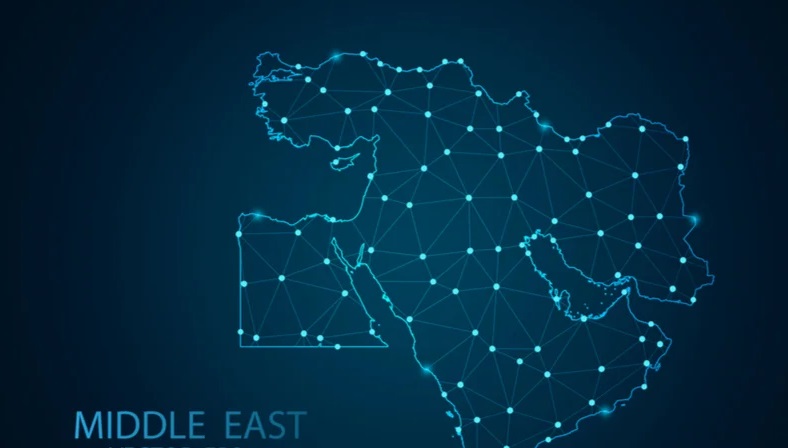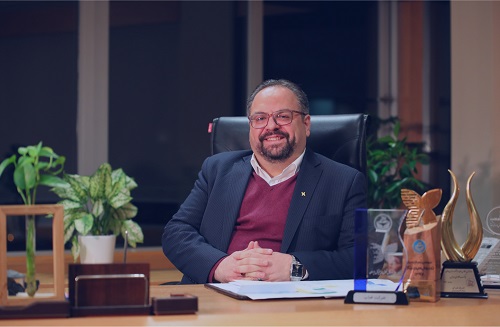In a recent statement, the CEO of Fanap Group underscored the necessity of fostering cooperation policies among Middle Eastern countries with a focus on digital technologies. Dr. Shahab Javanmardi unveiled the initiative of the “Middle East Digital Cooperation Union” at Iran’s Technology Day event, hosted with the support of Fanap Group at the GITEX 2023 exhibition.
Fanap Group CEO Emphasizes Digital Technology Cooperation in the Middle East
According to IDEA, Dr. Javanmardi commenced his address by referencing the consensus reached by researchers and historians during the Middle Eastern Economic History Conference held in London in June 1967. At that time, researchers concluded that “the Middle East is the world’s energy warehouse, encompassing vital resources such as oil and gas, and for many years, it will navigate the opportunities and threats arising from these essential commodities.”
The CEO of Fanap Group went on to say that it has been 54 years since the issuance of that statement, and the Middle East has witnessed numerous historical ups and downs. He continued, “None of the participants in that conference in 1967 could have ever imagined that today we would be facing a digital Middle East with the potential of a multi-trillion-dollar digital economy. It may even become an annual occurrence for the largest information technology exhibition in the world, held in the UAE, featuring the participation of all the global IT giants.”
Emphasizing the paradoxical coexistence of conflicts, crises, and increasing challenges on one side and grandeur, wealth, and prosperity on the other in this region, the CEO of Fanap Group noted that the only factor capable of transforming this dual contradiction in favor of the region’s countries is a policy centered around digital technologies. A policy that has been increasingly observed in the behaviors of the region’s leaders in recent years, bringing a great sense of satisfaction.
Tehran Chamber of Commerce VP Highlights the Promise of Digital Cooperation in the Middle East
The Vice President of the Tehran Chamber of Commerce, Industries, Mines, and Agriculture, emphasized the interconnected fate of the Middle East and its remarkable history. He stated that they are building the foundational cultural and social commonalities in a unified entity known as “Middle East” and firmly believed that, with the aid of information and communication technologies as well as disruptive and emerging technologies, deeper connections between the people of this region will be established, both today and in the near future.
The CEO of Fanap Holdings stated, “As a private sector entity, we must, in parallel with government interactions, create more serious and resolute long-term collaborations through joint chambers of commerce. The future interests of the Middle East, countries, cities, and our families lie in the cooperation on strategic digital projects within the strategic region of the Middle East.”
He emphasized, “The reality is that despite centuries of historical precedence in economic, trade, and commercial collaborations among the countries of the Middle East and the Persian Gulf, whether among themselves or in interactions with other global regions, we must acknowledge that economic actors and governments in the region have never been as regionally oriented as their counterparts in other parts of the world. They have been unable to create economic and political unions, common currency regions, and safeguard their regional and global interests through these collaborations.”
Shahab Javanmardi introduced the initiative of the “Middle East Digital Cooperation Union,” stating, “It is evident that for the formation of such a strategic collaboration, it will require collective effort and the will of all representatives of the private sector, along with the necessary support and assistance from the government.”
Tehran Chamber of Commerce Paves the Way for the Middle East Digital Cooperation Union
In a groundbreaking development, specialized and purposeful meetings have led to the establishment of a foundational agreement in the Middle East, fostering the formation of a regional union focused on digital cooperation underpinned by innovation and digital technologies. It is from this platform that the Tehran Chamber of Commerce expresses its readiness to temporarily undertake the secretariat and host negotiations. Alongside this proposal, a paradigm called “Digital Middle East 4.0” is presented, encompassing joint investments, shared ventures, and project execution.
The Vice President of the Tehran Chamber of Commerce, Industries, Mines, and Agriculture pointed out, “These projects will involve infrastructure initiatives such as shared data centers in the Middle East, the implementation of Industry 4.0 projects in the region, the deployment of robotic technologies, the development of mobile technologies, the execution of projects related to the concept of a ‘Smart Middle East,’ and the expansion of artificial intelligence applications, all within the framework of ‘Unified Middle East’ and ‘Agile Middle East.'”
He emphasized the proposal by the Tehran Chamber of Commerce, Industries, Mines, and Agriculture to serve as a robust private sector pavilion and called on those present to disseminate this proposal to relevant quarters through their respective media channels. He further noted that this proposal will be officially communicated to joint chambers in other Middle Eastern countries.
Dr. Javanmardi, who delivered his remarks in both Persian and English at the GITEX event for Iranian and international participants, also addressed his colleagues in Iran, stating, “We need a paradigm shift of the mind. Being in a country like the UAE, attending events like GITEX, and participating in B2B trade missions should not solely serve as platforms for customer acquisition, sales opportunities, or product representation.”
He continued, “Our mindset shift, in terms of the concept of ‘Global Mindset,’ should lead to deeper and broader collaborations in multinational and multilateral cooperative settings, whether it be establishing a multinational corporation or embarking on regional and cross-regional technology-driven projects.” The CEO of Fanap emphasized the readiness of his colleagues at Fanap Holdings for discussions in B2B negotiation sessions and their preparedness for various forms of regional interaction.
[postx_template id=”4061″]





No Comment! Be the first one.